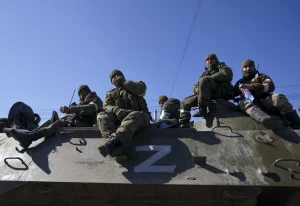
Ukraine shifts focus from refinery attacks to oil depots, intensifying pressure on Russia
Ukraine's Defense Forces have shifted their focus from attacking refineries to targeting oil depots. This change, marked by regular fires at Russian oil depots in August, has raised questions about the strategic benefits of such a decision
Oleksandr Kovalenko, a military and political observer with the Information Resistance group, has delved into the issue.
One notable example is the fire in Proletarsk, Rostov Region, which burned for 10 days. But why move away from refineries after seemingly successful attacks? Let's explore the reasoning.
Strategic advantages
Since late 2023, Ukrainian forces have consistently targeted Russian oil refineries, leading to temporary shutdowns and repairs. However, these refineries eventually resumed operations, which isn't surprising.
A refinery operates like a small city, and disabling it for an extended period requires more than just a drone with 30 kg of explosives. While a drone can halt operations temporarily, it cannot cause long-term paralysis. In contrast, oil depots present a different and more vulnerable target.
Ukraine now has 'kamikaze' drones with a range of up to 2,500 km, putting numerous Russian oil depots at risk. These depots, numbering in the hundreds and varying in size, operate a substantial number of storage tanks—over 2,550 before the strikes began.
The key point is that Russia has a limited number of tanks, and rebuilding or replacing them takes much longer than repairing a refinery after a similar attack. Moreover, these strikes on oil depots are more impactful, as the number of tanks decreases with each hit, and the effect is more severe than refinery attacks.
Impact of strikes on oil depots
The immediate visual impact of an oil depot attack—tanks engulfed in flames and black smoke visible for kilometers—is striking. For Ukrainians, it's a cause for satisfaction, while for Russians, it’s a source of shock, confusion, and realization of the authorities' powerlessness. This is just one aspect; there are others worth noting.
Firstly, the effectiveness of oil depot attacks lies in their efficiency. For instance, if 10 'kamikaze' drones are sent to an oil depot with 20-30 tanks, even if nine are shot down by air defenses, one drone can still achieve its goal, potentially causing a chain reaction that could destroy the entire depot. The fire in Proletarsk followed this scenario.
Secondly, the impact on the frontline is significant. Fewer operational oil depots close to the border make it harder for Russian forces to maintain supplies of fuel and lubricants. With most at-risk oil depots being key to storing and shipping Russia's products, logistics play a crucial role in supporting Russian occupation forces.
Hypothetically, if Russian forces lacked operational oil depots within a 2,500 km radius, how would they manage fuel and lubricant supplies? The logistical challenges for Russia’s 550,000-strong military would be immense.
Thirdly, there's the issue of oil production. This aspect is often overlooked in favor of military concerns, but it's crucial. Russia's oil production has many challenges, one being the inability to halt production at most wells.
A 2016-17 Russian Ministry of Natural Resources report revealed that oil fields in the Urals were over 70% depleted, and those in Western Siberia over 50%. In 2019, Rosnedra's inventory showed that 600 of Russia's 2,700 oil fields, holding 5.7 billion tonnes of oil, were economically unviable.
In January 2019, Rosneft's CEO, Igor Sechin, requested tax breaks for the Priobskoye field, citing that only 10% of its output was oil, with the remaining 90% being water and other impurities.
The critical point here is that if oil production stops at these mostly depleted fields, restoring them would be nearly impossible. Russia's oil fields are in a dire situation—produce to the last drop or face collapse. Even when oil prices fell below $30 per barrel, Russian fields continued production at a loss, storing the excess in anticipation of better times.
But what happens if Russia can neither sell nor store its oil because its oil depots have been destroyed?
The destruction of these storage tanks, which are limited in number, could lead Russia to an oil crisis. The country might find itself with no storage facilities and no choice but to dump the oil back into the fields.
In essence, targeting oil depots—seemingly minor objects—could prove more damaging to Russia than strikes on air defenses, headquarters, or ammunition depots. This strategy could inflict greater long-term harm on Russia’s military and political regime than other methods of pressure.
- News











































